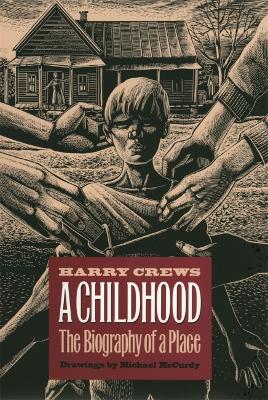This was so special to me. Life-giving, in a way. For all the stories and family histories I have heard, so much of it has been lost. So much of it I’ll never hear. This was like getting to find the pieces of it I might not otherwise, to borrow those shoes from someone else for a while and imagine my own people in them. That’s essentially what Harry Crews is doing here anyway: finding the pieces of his past he’s lost.
“I come from people who believe the home place is as vital and necessary as the beating of your own heart. It is that single house where you were born, where you lived out your childhood, where you grew into young manhood. It is your anchor in the world, that place, along with the memory of your kinsmen at the long supper table every night and the knowledge that it would always exist, if nowhere but in memory.”
It’s tremendous. It’s the south, through and through: all of its people and its customs and its loveliness and ugliness. And it’s all stories, stories, stories. As we live and breathe.
“I had already learned— without knowing I’d learned it— that every single thing in the world was full of mystery and awesome power. And it was only by the right way of doing things— ritual ways— that kept any of us safe. Making stories about them was not so that we could understand them but so that we could live with them. It all made perfect sense to me. Fantasy might not be truth as the world counts it, but what was truth when fantasy meant survival?”
